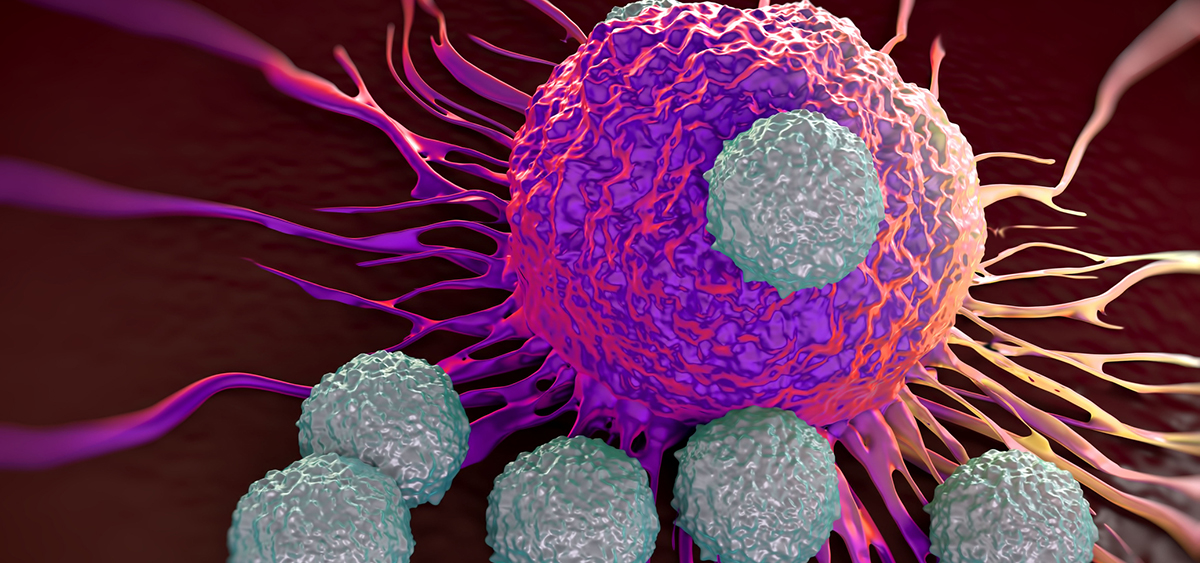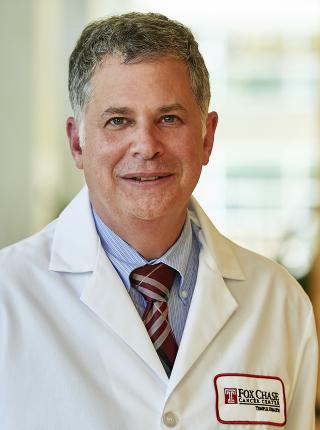The information presented in Oncology News Connection (ONC) eNewsletter is provided for physicians and other healthcare providers only and should not be shared with any current or future patients. If you are not a healthcare provider, we welcome you to sign up for Thrive eNewsletter to receive the latest information and blog highlights from Fox Chase Cancer Center.

Cellular immunotherapy has revolutionized cancer treatment. Harnessing the body’s own immune system to fight cancer, these therapies are providing new hope for previously intractable cancers. “Cellular immunotherapy is incredibly exciting,” said Henry Fung, MD, FACP, FRCPE , Chair of Fox Chase Cancer Center’s Department of Bone Marrow Transplant and Cellular Therapies. “It seems like a miracle that patients with relapsed or refractory lymphoma or leukemia who were running out of options can achieve durable remission.”
Cellular immunotherapy uses genetic engineering technology to equip a patient's immune cells to fight cancer. One type of cellular immunotherapy, chimeric antigen receptor (CAR) T-cell therapy, is FDA-approved for two indications—relapsed or refractory large B-cell lymphoma in adults and refractory B-cell precursor acute lymphoblastic leukemia in young adults up to 25 years old.

The effectiveness of cellular immunotherapy against other hematologic malignancies is also being explored, and at Fox Chase, a variety of clinical trials are focused on multiple myeloma, follicular lymphoma, and chronic lymphocytic leukemia. “The preliminary trial results are very promising,” Fung said.
Patients with solid organ tumors may also benefit from cellular immunotherapy, which could stimulate the body’s own immune system to recognize and destroy tumors. “Immunotherapy with antibodies has completely changed the management of patients with melanoma, lung, kidney, bladder and other solid tumors. Cellular immunotherapy may be the next big advance, but will require clinical trials,” said Martin Edelman, MD, Chair of Fox Chase’s Department of Hematology/Oncology.

Edelman and Anthony Olszanski, MD, RPh, Vice Chair of Fox Chase’s Department of Hematology/Oncology and Director of the center’s Early Clinical Drug Development Phase I Program, are collaborating on multiple Phase I trials to evaluate engineered T-cell therapies and other types of cellular therapy in patients with lung, kidney, head and neck, genitourinary, cutaneous, and digestive cancers. “These trials are not available at most institutions. We are among a dozen or so centers in the country with these protocols,” Fung said. “The key is to get patients diagnosed and referred quickly to maximize the options we can provide them.” Olszanski added, “This is a complex process which requires appropriate screening of potential patients, a well-honed team in constant communication, and close collaboration between medical oncology and hematologic oncology.”
Cellular immunotherapy is only available at certified centers that have FDA-mandated Risk Evaluation and Mitigation Strategy (REMS) drug safety programs in place. Certified centers need to have the appropriate expertise, quality assurance programs, and space. There are only about 70 certified centers in the US, and most of them have active bone marrow transplant (BMT) programs.
“Patients being treated with cellular immunotherapy are very ill and need care from multidisciplinary teams who have been doing this for a long time,” Fung said. “Fox Chase’s BMT Program has been certified for more than 20 years, so we have highly trained professionals with a variety of subspecialized experience.”
Fox Chase has been on the forefront of cellular immunotherapy from the beginning, and with many clinical trials for hematologic malignancies and solid tumors in progress, the center will continue to serve as a leader in the field.

“Our capabilities are advanced because we started earlier. We participate in clinical trials and, as a leader in the field, we are uniquely positioned to translate the findings from clinical trials into practice as soon as new cellular immunotherapies become available,” Fung said. “We continue to provide cutting-edge therapies and breakthrough technologies for our patients.”
Four Things to Know About Cellular Immunotherapy
- CAR T-cell therapy, a type of cellular immunotherapy, is indicated for two hematologic malignancies—refractory large B-cell lymphoma in adults and B-cell precursor acute lymphoblastic leukemia in adults <25 years old.
- Cellular immunotherapy for the treatment of other hematologic malignancies, including multiple myeloma, follicular lymphoma, and chronic lymphocytic leukemia, is being evaluated in clinical trials.
- Phase I clinical trials of cellular immunotherapy for solid organ tumors are now available at a few medical centers, including Fox Chase.
- Fox Chase is one of a small number of certified centers that can administer FDA approved cellular immunotherapies and conduct clinical trials for new therapies and indications.